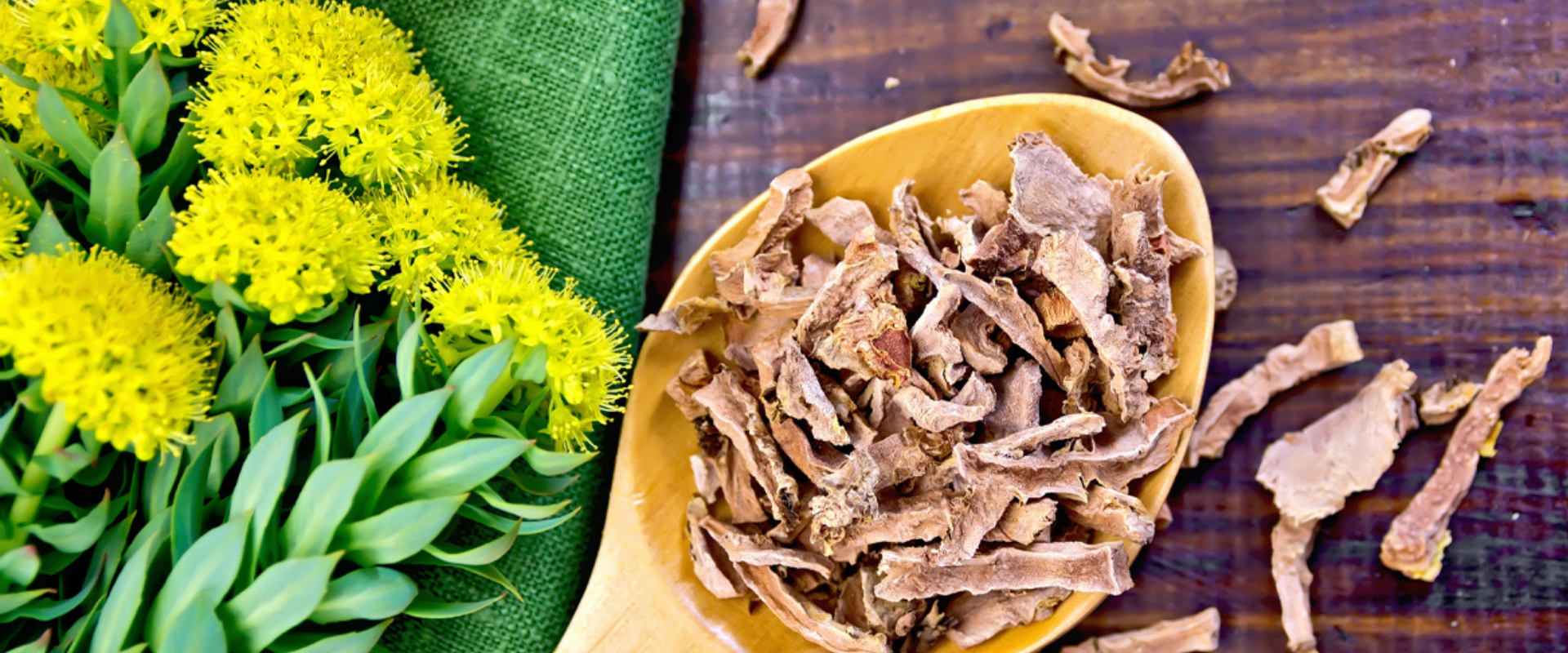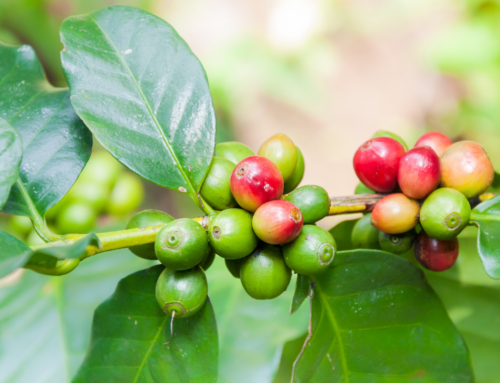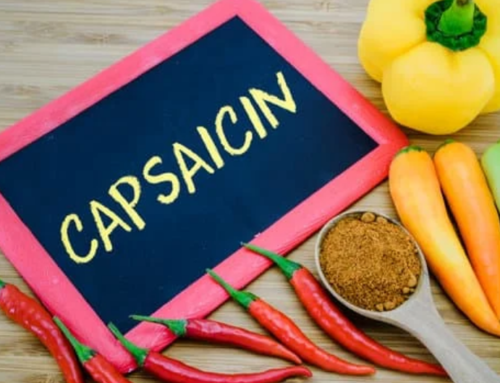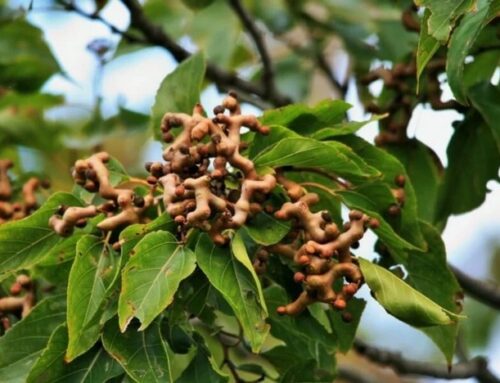- What is Rhodiola rosea extract?
Rhodiola (also known as Arctic Root, Golden Root) is one of the sedum family, which is native to the Arctic Circle in Eastern Siberia. Rhodiola is widely distributed in the polar circle and mountainous regions of Europe and Asia. It grows at altitudes above 11,000 to 18,000 feet. Rhodiola rosea was classified as an adaptogen by Soviet scientists for its efficacy in increasing the ability to various chemical, biological and physical stresses. Rhodiola has been used in traditional herbal medicine in China, Siberia and the Carpathian regions of Ukraine. In the former Soviet Union, it was used as a class of adaptogens to reduce fatigue and enhance the body’s natural resistance to various stresses. There is a rumor in Siberia that “you can live to be 100 years old if you insist on drinking rhodiola tea”. In Siberia, especially during the cold and wet winters, Rhodiola rosea is often taken to prevent disease. In Mongolia, it is used in the treatment of tuberculosis and cancer. In the Changbai Mountain area of China, local residents call it “the grass of immortality”, and the Shennongjia area is also called “the grass of nine deaths”.
Rhodiola rosea extract is a natural extract extracted from the root of Rhodiola rosea, a plant of the sedum family, which is refined, concentrated and dried. It has a sweet smell and a bitter taste, and is easily soluble in water, easily soluble in methanol, soluble in ethanol, insoluble in ether. It is relatively stable to heat. The main components of Rhodiola rosea extract are salidroside, aglycone tyrosol, and Luosaiwei. It has the effects of enhancing immune function, protecting cardiovascular and cerebrovascular, anti-cancer and anti-depression. Rhodiola rosea extract resulted in favorable changes in various physiological functions in different areas, including neurotransmitter levels, central nervous system activity, and cardiovascular function.
Salidroside has the functions of preventing tumors, enhancing immune function, delaying aging, anti-fatigue, anti-hypoxia, anti-radiation, two-way regulation of the central nervous system, and repairing and protecting the body. Often used as a treatment for chronically ill and frail susceptible patients. Clinically used to treat neurasthenia and neurosis, improve attention, memory, high altitude polycythemia, hypertension; as a neurostimulant agent, used to improve intelligence, improve autonomic-vascular dystonia, muscle weakness, etc.; For diseases with increased free radicals, such as tumors, radiation damage, emphysema, senile cataract, etc.; also as a tonic agent for impotence, etc.; salidroside preparations are also used in sports medicine and aerospace medicine, used in various Health protection of workers under special environmental conditions.
- What are the benefits of Rhodiola rosea extract?
Rhodiola rosea mainly contains phenylpropyl esters and flavonoids. Its unique active chemical components are phenylpropyl esters, rosavin (the most active), rosin, rosarin, rhodiolin, salidroside and its aglycone, that is, p-tyrosol. Only Rhodiola rosea contains rosavin, rosin and rosarin. It has the following 8 major benefits:
A. Rhodiola rosea extract can enhance immune function
Rhodiola rosea extract normalizes the immune system by improving T-cell immunity. It can improve the body’s resistance to the poison that the infection gradually develops.
B. Rhodiola rosea extract can eliminate depression
Rhodiola rosea is used to elevate one’s mental state and is a valuable medicine for those who live in countries and seasons that don’t get enough sunlight due to prolonged monthly cycles. Rhodiola rosea extract was able to effectively reduce or remove depressive symptoms in 65% of patients.
C. Rhodiola rosea extract can protect cardiovascular function
Rhodiola rosea extracts have been shown to moderate stress-induced cardiovascular tissue damage and dysfunction, prevent the reduction of cardiac contractility secondary to ambient stress in the freezing state, and help stabilize contractility. Pretreatment with Rhodiola appears to elicit beneficial adaptive responses to this type of stress. Rhodiola thus regulates the beating of the heart and prevents arrhythmias.
D. Rhodiola rosea extract is a potent antioxidant
Rhodiola has potent antioxidant powers, and by limiting the adverse effects of free radical damage, it is effective against diseases caused by aging.
E. Rhodiola rosea extract can improve human function
Like Siberian ginseng, Rhodiola rosea extract is often taken by athletes to enhance body function. Although its mechanism is still not fully understood, it appears to improve the muscle/fat ratio and increase blood levels of hemoglobin and red blood cells.
F. Rhodiola rosea has anticancer activity
Taking Rhodiola rosea extract has shown potential as an anticancer drug and may be very effective in combination with several antineoplastic drugs. Soviet scientists found that oral administration of Rhodiola inhibited tumor growth in 39% of experimental rats and reduced metastasis in 50% of rats. It improves urinary tissue and immunity in bladder cancer patients. In experiments with various other cancers, including adenocarcinomas (cancers of glandular tissue such as breast cancer) and lung malignancies. Rhodiola rosea extract resulted in a significant increase in survival rates.
G. Rhodiola rosea extract can enhance sexual function
In Russian and Far Eastern cultures, Rhodiola rosea extracts have a long history of enhancing sexual performance. Rhodiola has traditionally been used for sexual dysfunction in men and women.
H. Rhodiola rosea can improve memory
In a controlled placebo experiment on the effects of Rhodiola rosea extract on intellectual performance, subjects were tested both before and after taking Rhodiola rosea extract or a placebo. The experimental group recorded a marked improvement while the control group did not.
- What are the pharmacological effects of Rhodiola rosea extract?
A. Anti-fatigue effect
Oral administration of Rhodiola rhodiola can prolong the pole climbing time, swimming time and load swimming time of mice. It can shorten the time required for recovery after fatigue, improve enzyme, RNA and protein levels, so that muscles can recover as soon as possible after fatigue.
B. Effects on central nervous mediators
Rhodiola can normalize the content of serotonin in mice under swimming conditions, that is, the content of central nervous mediators from normal dunes is corrected or reaches a normal level. Mice injected with salidroside (30-300mg/kg) can reduce the level of serotonin.
C. Anti-hypoxia effect
Oral administration of the extracts of Rhodiola rosea, Rhodiola serrata, and Rhodiola crimsonum can make the experimental animals show obvious antagonism to various hypoxia modes, and its effect is stronger than that of ginseng and Acanthopanax senticosus .
D. Anti-aging effect
The alcohol extract of Rhodiola rosea can improve the activity of red blood cells and liver SOD in rats, and has a tendency to increase the activity of myocardial SOD. Red wild flax flies drinking Rhodiola rosea extract can significantly prolong their lifespan, and the lifespan extension rate is better than that of ginseng. Rhodiola can promote the proliferation of 2BS cells and reduce the death rate, can inhibit the lipid peroxidation of rat cells and enhance the activity of serum superoxide dismutase.
E. Anti-tumor
Rhodiola has a certain inhibitory effect on S180 cells. Within the range of non-toxic and side effects, this effect increases with the increase of concentration. Continuous oral administration of Rhodiola rosea extract can reduce the carcinogenic damage of erythromycin to the small intestine wall of mice, and improve the body’s anti-cancer ability.
F. Detoxification effect
Salidroside has the effect of antagonizing strychnine poisoning, and can improve the survival rate of mice after strychnine poisoning by 50%; Bacterial toxins increase the survival time or survival rate of mice taking potent poisons, sodium cyanide, and sodium nitrite.
4. What is the dosage of Rhodiola rosea extract?
Even at high doses, the potential toxicity of Rhodiola rosea is only one-quarter that of Korean ginseng. The general recommended dose is approximately 360-600 mg of Rhodiola rosea extract containing standard 1% rosavin or 100-170 mg of extract containing standard 3.6% rosavin per day. As a class of adaptogens, their long-term use should generally be taken for several weeks in advance to pre-promote physiological, chemical and biological stress, and sustained during the duration of the antagonistic response or activity. When Rhodiola is taken alone for acute use (eg as a test or for athlete competition). The recommended dose is 3 times that for long-term use.
5. Are there any side effects of Rhodiola rosea extract?
Taking more than 800 mg per day may cause the following side effects: hypersensitivity, insomnia and unpleasantness. No other side effects have been found so far.
Well, the above is the detailed introduction of the health benefits of Rhodiola rosea extract we introduce for you today. We hope it will be helpful to you. Friends who need Rhodiola rosea extract can contact us for more relevant information. In addition, Xi’an Herb Bio is a Chinese professional supplier of natural ingredients, covering herbal extracts, food additives, fruit & vegetable powder and mushroom powder. If you want to know more, please click here to get free samples and quotations!






Leave A Comment